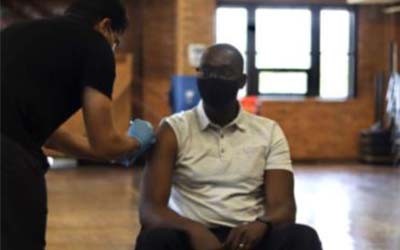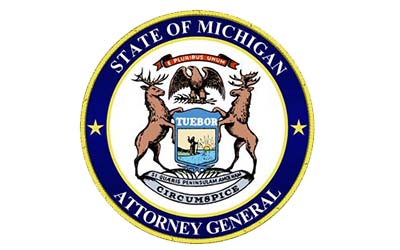| Some of this week’s stories may reflect the impact of COVID-19 and how the Michigan Department of Natural Resources has adapted to meet customers’ needs and protect public health and safety. We will continue to share news and information about the best ways to enjoy our state’s natural and cultural resources.
Follow our COVID-19 response page for FAQs and updates on access to facilities and programs. For public health guidelines and news, visit Michigan.gov/Coronavirus and CDC.gov/Coronavirus.
Here’s a look at some of this week’s stories from the Department of Natural Resources:
See other news releases, Showcasing the DNR stories, photos and other resources at Michigan.gov/DNRPressRoom.
PHOTO FOLDER: Larger, higher-res versions of the images used below, and additional ones, are available in this folder.
 Want to see more pictures like this, taken by Michigan state parks photo ambassador Samantha Hageman at Highland Recreation Area in Oakland County? Visit Instagram.com/MiStateParks to explore photos and learn more about the photo ambassadors! For more on the program, call Stephanie Yancer at 989-274-6182. Want to see more pictures like this, taken by Michigan state parks photo ambassador Samantha Hageman at Highland Recreation Area in Oakland County? Visit Instagram.com/MiStateParks to explore photos and learn more about the photo ambassadors! For more on the program, call Stephanie Yancer at 989-274-6182.
 You might be surprised to find a fawn alone in a quiet spot in your backyard, neighborhood or local park, and while it seems like an unusual spot for a baby to be, chances are its mother is close by. You might be surprised to find a fawn alone in a quiet spot in your backyard, neighborhood or local park, and while it seems like an unusual spot for a baby to be, chances are its mother is close by.
“For the first few weeks of a white-tailed fawn’s life, the mother will hide it in secluded locations to keep predators from finding it,” said Hannah Schauer, wildlife communications coordinator with the DNR. “Predators are less likely to hang out near people’s homes, so for a mama deer it seems like a safe place to hide her baby.”
While fawns may seem abandoned, they rarely are. All wild white-tailed deer begin life this way.
“A fawn’s spots provide excellent camouflage and help it stay hidden from predators,” said Schauer.
If you find a fawn alone, do not touch it! The mother will return periodically to nurse her fawn when she feels it is safe.
Schauer said the best thing to do is to leave the fawn alone and enjoy the wildlife viewing experience from a distance. Leaving baby animals in the wild ensures they have the best chance for survival and helps keep Michigan’s wildlife wild.
Learn more by watching the video Finding fawns in Michigan.
Only licensed wildlife rehabilitators may possess abandoned or injured wildlife. Unless a person is licensed, it is illegal to possess a live wild animal, including deer, in Michigan.
Get tips about what to do if you find a baby animal in the wild and find a list of licensed wildlife rehabilitators at Michigan.gov/Wildlife or contact the DNR Wildlife Division at 517-284-9453. |
 May is American Wetlands Month, and what better way to mark the moment than to get out and explore one of Michigan’s Wetland Wonders? From Portage Marsh State Wildlife Management Area in the Upper Peninsula to Pointe Mouillee State Game Area just 25 miles from the Ohio border, Michigan’s Wetland Wonders provide year-round recreation opportunities like birding, boating, fishing, hiking, photography and hunting. May is American Wetlands Month, and what better way to mark the moment than to get out and explore one of Michigan’s Wetland Wonders? From Portage Marsh State Wildlife Management Area in the Upper Peninsula to Pointe Mouillee State Game Area just 25 miles from the Ohio border, Michigan’s Wetland Wonders provide year-round recreation opportunities like birding, boating, fishing, hiking, photography and hunting.
Taking a trip to a Wetland Wonder? Share a selfie by the game or wildlife area sign and you could win a $1,000 gift card for outdoor gear! The Explore MI Wetland Wonders challenge is sponsored by Consumers Energy with contest partners MI Birds and Michigan United Conservation Clubs.
To be entered in the prize drawing, email your photo, along with your name, email address, phone number and mailing address, to DNR-WetlandWonders@Michigan.gov by July 16. The more Wetland Wonders you visit, the more chances you have to win! Each one you visit gives you one more chance in the drawing.
Four lucky winners will be randomly drawn July 23. All four will receive a Cabela’s gift card in varying amounts. The grand prizewinner will take home $1,000; the second, $750; the third, $500; and the fourth, $250.
Michigan’s Wetland Wonders provide high-quality wetlands for waterfowl and waterbirds while providing great outdoor recreation opportunities. These areas are funded by hunting license fees, but they are open for anyone to visit, use and enjoy most of the year.
When visiting a Wetland Wonders site, remember to be safe and mask up if you’re not fully vaccinated or with people from outside your household. Have a great time and enjoy Michigan’s abundant wildlife!
Visit Michigan.gov/WetlandWonders for full contest rules, locations and for more information about Michigan’s awesome Wetland Wonders.
Questions? Contact Holly Vaughn at 248-881-9429. |
 Inspired by Bob Ross’ love of the outdoors, more than 18,000 people took part in this year’s Happy Little Virtual 5K late last month between Earth Day and Arbor Day. Inspired by Bob Ross’ love of the outdoors, more than 18,000 people took part in this year’s Happy Little Virtual 5K late last month between Earth Day and Arbor Day.
The tree-planting program – where seeds are placed in the care of inmates in one of Michigan Department of Correction’s education programs – began in 2004, but grew into the “Happy Little Trees” program in 2019 during the Michigan state parks centennial, when the DNR Parks and Recreation Division and Bob Ross Inc. partnered on programming to help raise awareness of tree-planting and forest protection efforts in state parks.
The program began with hundreds of volunteers helping to plant “happy little trees” at locations hard-hit by invasive pests and tree diseases, but the partnership quickly expanded to include thousands of runners and walkers raising awareness and funding for stewardship efforts through the Run for the Trees/Happy Little Virtual 5K.
Race proceeds support tree-planting and forest protection efforts – such as invasive plant and forest pest management and early detection surveys – in Michigan state parks and recreation areas. Many of these locations have been affected by tree pests and diseases like emerald ash borer and oak wilt.
This year’s Happy Little Virtual 5K welcomed 18,089 participants, 70% of which hailed from Michigan, followed next by Ohio and Wisconsin. All 50 states were represented, and 150 people participated internationally from England, Australia and Mexico.
Participants completed their 5K anywhere outdoors anytime between April 22-30. For $34 per person, each participant received a keepsake Happy Little T-shirt, a commemorative bib number and a finisher’s medal featuring a reproduction of a real Bob Ross painting. This year’s race raised $305,000 for tree-planting and forest protection efforts in state parks.
The program has produced more than 100,000 native plants, shrubs and trees since its start in 2004. With support from the Bob Ross partnership, more than 2,100 trees have been planted in 20 state parks across Michigan. The U.S. Forest Service Great Lakes Restoration Initiative and Chateau Grand Traverse also have provided significant support for the program.
“Over the past two years, this Bob Ross-inspired event has generated more than $600,000 for tree planting and efforts to protect forests in state parks,” said Michelle O’Kelly, fund developer and Happy Little Trees race director for the DNR Parks and Recreation Division. “Though the race takes place in the short window between Earth Day and Arbor Day, the positive impact on Michigan’s ‘Happy Little Trees’ will be felt for many years – and many trees – to come.”
Learn more about the program at Michigan.gov/DNRHappyLittleTrees.
Questions? Contact Michelle O’Kelly at 517-881-5884. |
|






 Want to see more pictures like this, taken by Michigan state parks photo ambassador
Want to see more pictures like this, taken by Michigan state parks photo ambassador  You might be surprised to find a fawn alone in a quiet spot in your backyard, neighborhood or local park, and while it seems like an unusual spot for a baby to be, chances are its mother is close by.
You might be surprised to find a fawn alone in a quiet spot in your backyard, neighborhood or local park, and while it seems like an unusual spot for a baby to be, chances are its mother is close by.
 May is American Wetlands Month, and what better way to mark the moment than to get out and explore one of
May is American Wetlands Month, and what better way to mark the moment than to get out and explore one of  Inspired by Bob Ross’ love of the outdoors, more than 18,000 people took part in this year’s Happy Little Virtual 5K late last month between Earth Day and Arbor Day.
Inspired by Bob Ross’ love of the outdoors, more than 18,000 people took part in this year’s Happy Little Virtual 5K late last month between Earth Day and Arbor Day.








